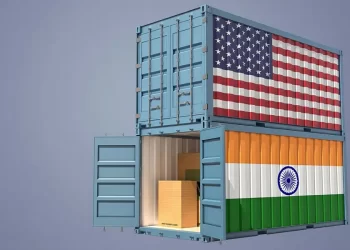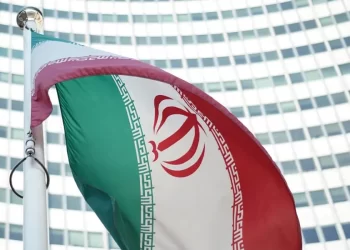HONG KONG (news agencies) — A Hong Kong court Thursday convicted 14 pro-democracy activists in the city’s biggest national security case under a law imposed by Beijing that has all but wiped out public dissent.
Those who were found guilty included former lawmakers Leung Kwok-hung, Lam Cheuk-ting, Helena Wong and Raymond Chan. But the three judges approved by the government to oversee the case acquitted former district councilors Lee Yue-shun and Lawrence Lau. Those convicted could face up to life in prison.
They were among 47 democracy advocates who were prosecuted in 2021 for their involvement in an unofficial primary election. Prosecutors had accused them of attempting to paralyze Hong Kong’s government and topple the city’s leader by securing the legislative majority necessary to indiscriminately veto budgets.
Observers said their subversion case illustrates how the security law is being used to crush the political opposition following huge anti-government protests in 2019. But the Beijing and Hong Kong governments insist the law has helped bring back stability to the city and that judicial independence is being protected.
When Britain handed Hong Kong back to China in 1997, Beijing promised to retain the city’s Western-style civil liberties for 50 years. However, since the introduction of the 2020 law, Hong Kong authorities have severely limited free speech and assembly under the rubric of maintaining national security. Many activists were arrested, silenced or forced into self-exile. Dozens of civil society groups disbanded.
The prosecution of the primary case involves pro-democracy activists across the spectrum. They include legal scholar Benny Tai, former student leader Joshua Wong and a dozen former lawmakers including Leung Kwok-hung and Claudia Mo.
Thirty-one of them, including Tai, Wong and Mo, pleaded guilty to the charge of conspiracy to commit subversion. They have a better chance at shorter jail terms and will be sentenced at a later date.
Sixteen others, including Leung, pleaded not guilty and underwent a non-jury trial. After the verdicts, mitigation hearings will be scheduled to determine the sentences of those convicted.
Dozens of residents had lined up outside the police-guarded court building before 6 a.m. Thursday to secure a seat in the public gallery for the verdicts. Some supporters who were among the first in the line came as early as Wednesday evening.
Social worker Stanley Chang, a friend of one of the 16 defendants, said he arrived the site at 4 a.m. because he feared he could not get a seat. Chang said there were very few things supporters could do for them and that attending the hearing is a kind of company.
“I want to give some support for my friend and the faces I saw in news reports,” he said, who is in his 30s.
SL Chiu, who only gave his initials due to fear of government retribution, said the hearing marked a historic moment. To show his support, he said he had collected messages for the 47 activists from others in a sketchbook and planned to mail them if possible.
“Hong Kongers are still here. We haven’t given up. We are still with you all,” he said.
On Wednesday night, Lee Yue-shun, one of the accused, said on Facebook that Thursday was like a special graduation ceremony for him, though graduation is usually about sharing happiness with families and friends,
“This perhaps best reflects the common helplessness of our generation,” he said.
The July 2020 primary was meant to shortlist pro-democracy candidates who would then run in the official election. It drew an unexpectedly high turnout of 610,000 voters, representing over 13% of the city’s registered electorate.
The pro-democracy camp at that time hoped they could secure a legislative majority, which would allow them to press for the 2019 protest demands, including greater police accountability and democratic elections for the city leader.
But the government postponed the legislative election that would have followed the primary, citing public health risks during the coronavirus pandemic. The electoral laws were later overhauled, drastically reducing the public’s ability to vote and increasing the number of pro-Beijing lawmakers making decisions for the city in the legislature.
Beijing also had criticized the vote as a challenge to the security law, which criminalizes secession, subversion and collusion with foreign forces to intervene in the city’s affairs as well as terrorism.








